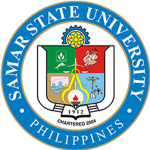Energy Conservation Program
The significance of energy efficiency and conservation in the Phippine economy cannot be overstated. Because of substantial energy imports in the form of electricity and petroleum goods. the country’s energy security is currently jeopardized. Samar State University is making concerted attempts to reduce demand-side energy by promoting energy efficiency solution5 around the community. Energy Efficiency and Conservation Policy presents a win-win option for Samar State University by providing positive returns to energy consumers and the environment through the reduction of environmental pollution, energy costs, and the reduction of the energy sector’s carbon footprint, as well as by enhancing energy security.
During droughts, when the nation’s hydro capacity is depleted because domestic energy is scarce. practically all of the electricity consumed is imported. The future of energy supply continues to face various issues, including a backlog of modernizing power stations and transmission networks, as well as huge outstanding customer bills, all of which offer significant uncertainty in future supply. A quick and practical option is to design and implement comprehensive energy efficiency and conservation program, as well as to rapidly scale up the country’s tremendous potential in support of renewable energy.
The Samar State University sends prudent forethought to all faculty, staff. students, and visitors advising them to take simple actions to conserve electricity. Where major confributions to energy consumption are made feasible, demonstrating our commitment to energy conservation and a sustainable university.
The goal of this policy is to regulate campus energy and utility consumption through the use of sustainable practices and procedures.
Faculty. staff, students and visitors all play an important part in energy conservation. Everyone must be accountable for using energy efficiently that is under their control.
Reduce energy consumption, provide appropriate indoor air quality. and enhance energy efficiency on campus using measures that are consistent with a safe, secure, and welcoming campus community.
The SSU is dedicated to implementing an Energy Conservation Program through the measures listed below:
- Enhance energy security by making better use of available energy sources:
- Reduce wasteful energy applications to mitigate the negative consequences of climate change on the environment;
- Embolden a conservation culture on campus and in the surrounding community:
- Encourage the development of new research and teaching opportunities centered on energy management and sustainability.
SSU is committed to energy efficiency and conservation program to reduce our fiscal and environmental impacts. Thus faculty, staff, students. and visitors shall contribute to these efforts by the following initiatives:
- Focilify Scheduling — Academic and administrative buildings musf be scheduled for temperature setbacks of night and on weekends during unoccupied hours to reduce building energY consumpfion during low- demand periods.
- Holidays — SSU Operations must establish temperature setbacks in academic and administrative buildings during University designated holidays to reduce building energy usage.
- Energy Data — Utility usage and expenses will be tracked and made available by SSU Operations so that informed decisions can be made.
- Measure and Verification — SSU Operations shall employ measurements and trends to ensure that projects conserve energy, and cost as projected, and are under the Planning Management Office.
- Energy Conservation Measures – Energy Conservation Measures must be tracked. reported on, and audited by SSU Operations.
- Renewables — Renewable generation prospects will be investigated by SSU Operations, and renewable generation confracfs will be assessed collectively to ensure potential energy sources are reliable and economically, ecologically, and socially responsible.
- LED Lighting — When financially feasible. SSU Operations will replace broken lights with LED lamps or the most energy-efficient choice available.
Individual Behaviors — Faculty, staff, students, and visitors shall be responsible for energy conservation in their workspace.
Following these goals and tactics should result in the following advantages:
- Minimize growing utility costs on campus:
- Expand the useful life of costly equipment and infrastructure;
- Decrease SSU’s greenhou5e pas contribution:
- Foster a healthier environment for our faculty, staff, visitors, and surrounding communities.



